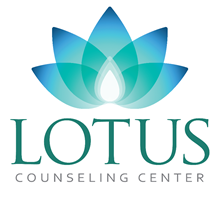
Domestic Violence
Domestic Violence
I have been working with survivors of Domestic Violence since early 2009. The term Domestic violence includes physical violence and often stalking by an intimate partner, however, it is a term used to convey a pattern of coercive and controlling behaviors used by one person over another to gain power and control. This may include verbal, physical, emotional and sexual abuse. Although it is commonly thought of as something that occurs more often to females, there are over 25% male victims in the US alone. Although Domestic Violence (now known as intimate partner violence) implicates physical violence, anyone working with this population will most definitely come across a variety of interrelated issues that cannot be separated from the abuse itself. These issues range anywhere from addiction, codependency, trauma, self esteem, suicidality, anxiety and depression, to financial, social and other mental health matters.
There are so many overt and covert complications that come with abuse it’s almost baffling, even to a counselor who is trained and experienced.
Working through the layers, impact and devastation of domestic abuse is a gradual process that requires skill, sensitivity, and often a lot of time, because survivors do not realize the gravity of the damage or abuse until they begin unfolding the story. Many survivors may normalize the relationship, particularly if that’s all they are familiar with.They may not have resources to leave or fear leaving, and those who do leave, may be out of the relationship physically (removed) but can still be trauma bonded or experiencing flashbacks and after effects long after the partner is gone.
The biggest challenge in counselling survivors of intimate partner Violence is allowing the client to guide you into understanding what their version of abuse means as it may be so radically different from your own. It’s important that each individual have the space to speak freely and openly about sensitive topics without feeling threatened or judged. Once a strong rapport is established, only then a counselor can begin to intervene and correct distorted thoughts or make appropriate referrals.
The unique challenge this subject broaches is the priority of ensuring the client’s safety first and most of all (crisis intervention). A careful assessment of the individual’s physical safety takes priority in this case to ensure the well being of person/people involved, including any children and minors that may be residing in the household. That being said, sometimes these cases progress differently than other counseling cases in that services such as case management, housing, safety plans, and crisis intervention may be required as a preliminary service to the therapeutic process. Because each case is so unique, therapists working with intimate partner violence need to be adept in the scope of issues that may accompany this topic to recognize red flags and safety issues, and it’s imperative to have resources available to collaborate with.
During my early career, I managed a grant for domestic violence housing and worked for a non profit organization called No More Tears which provides shelter and respite for survivors. I served as an expert witness in court for individuals who faced deportation and other challenges as a result of domestic violence. I have been witness to countless stories of rape, sexual assault, human trafficking and inhumane brutality. The problem is there is no comprehensive data that fully details the different ways that individuals experience domestic violence. What I have learned is that this is a global phenomenon, and the depth and scope is so wide in nature. There are so many factors that contribute to abuse that include cultural differences, gender roles, power and control, self worth, transgenerational abuse and family history. The search for causes and solutions to end domestic violence remains a phenomenon worth fighting for.
I am dedicated to helping people who are struggling with depression, anxiety, shame or addiction as well as trauma and issues surrounding sex and sexuality. I also work with process disorders such as narcissistic abuse, co-dependency and recently, I have been doing a lot of work with shoplifting as these are highly underserved communities and specific treatment for these issues are rarely available or even recognized.







